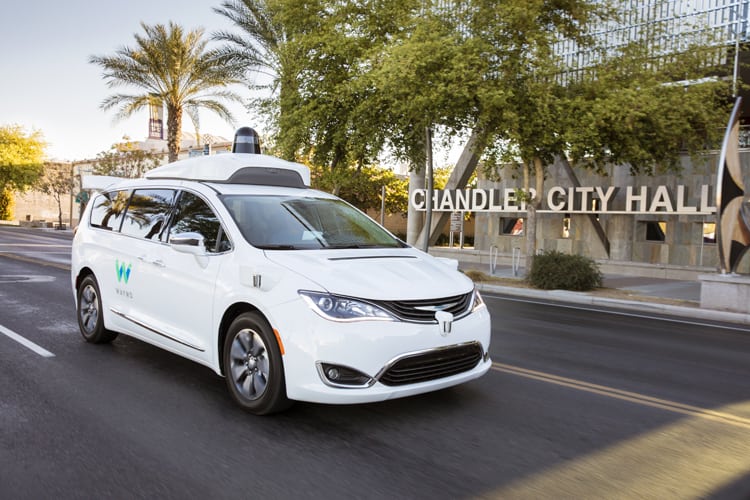A year after a number of high-profile automated vehicle incidents, Americans remain wary about the emerging technology. AAA’s Annual Automated Vehicle Survey found 71 percent of people are afraid to ride in fully self-driving vehicles. The study also showed promising results when it comes to acceptance of self-driving technology.
Although Americans still have reservations about self-driving vehicles for every day transportation, AAA’s study found they are more receptive to the idea of automated vehicles for more limited applications:
• About half (53%) are comfortable with low-speed, short distance forms of transportation like shuttles found in airports and theme parks.
• About four out of ten (44%) are also comfortable with automated vehicles delivering food and packages.
• More than half of Americans (55%) think most cars will have the ability to drive themselves by 2029. Lack of trust, not wanting to give up driving, doubts about the readiness of technology and/or infrastructure were reasons cited by those who are skeptical that fully self-driving vehicles will arrive that quickly.
• Once the passengers become more personal – in particular, transporting their loved ones – one in five (19%) remain comfortable.
AAA believes the more people understand about the benefits and limitations of the technology, the more prepared and receptive the public will be when it comes to fully automated vehicles. Today, in fact, AAA Arizona joined Waymo’s Let’s Talk Self Driving campaign to increase education and understanding around the safety and mobility benefits of fully autonomous vehicles with the public.
“Despite fears running high, AAA’s study shows Americans are willing to take baby steps toward incorporating this type of technology in their lives,” said Michelle Donati, spokesperson for AAA Arizona. “Hands-on experience in more controlled, low risk environments coupled with stronger education – like Waymo’s Let’s Talk Self-Driving campaign – will play a key role in easing the fears about self-driving cars.”
The study found that experience with automated technology helps drivers feel more comfortable. That was apparent during research AAA Nevada conducted in Las Vegas using a self-driving shuttle in the busy downtown area. The shuttle was the first and largest self-driving shuttle for public use in live traffic. It was also the first in the country to be fully integrated with smart city infrastructure to operate on open, public roads. A survey conducted with passengers after their ride showed 30 percent of them had a more positive attitude about autonomous technology.
“The self-driving shuttle project in Las Vegas showcased how this technology can work in live traffic,” said Donati. “AAA believes the key to helping consumers feel more comfortable with the technology will be bridging the gap between the perception of automated vehicle technology and the reality of how it actually works in today’s cars.”
Many vehicles on the road today are already equipped with advanced driver assistance systems (ADAS), which are considered building blocks for fully self-driving vehicles. AAA’s survey revealed 68 percent of drivers with advanced systems like lane keeping assistance and adaptive cruise control significantly improves consumer comfort levels.
AAA Arizona joined Waymo’s Let’s Talk Self Driving campaign to ensure consumers are aware of the benefits and limitations of self-driving technology.




